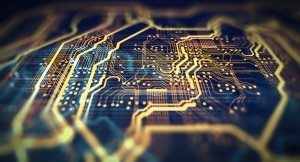Complex, digital technologies are finding their way into the energy sector. Growing quality requirements are increasingly confronting both energy suppliers and municipal utilities with complex technology relating to smart homes, smart cities, apps for energy services, automated electricity trading and virtual power plants. However, this change also offers the opportunity to develop new data-driven business models and reposition themselves on the market with the help of innovative services. "We are currently in a period of transition between the old and a completely new energy world," explains Tobias Thiel, Managing Director of enermarket GmbH. "As the demand for electricity in Germany is constantly growing [1], the importance of sustainability and cost efficiency for companies and customers is increasing." What are the advantages and disadvantages of these changes and how are digital technologies and decentralized data systems changing the business models of energy suppliers?
Initiating the energy transition with digitalization
Even now, in the transition phase, digital progress is proving to be essential for achieving energy policy goals. Greenhouse gas emissions are to be reduced by 55 percent by 2030 - and by at least 80 percent by 2050 [2] "Technical innovations such as smart metering, the expansion of digital power plants and the real-time data analysis they enable can make a major contribution to achieving these targets," says Thiel. "There is particular potential in the digitalization of renewable energies in the improvement of forecasts relating to consumption, generation, grid bottlenecks and peak loads. They simplify system monitoring and load management and thus ensure more effective and sustainable use of the energy generated." In addition to this further development and automation of internal work processes, energy suppliers are also simplifying communication with their customers and improving advisory services.
Data protection as a stumbling block
 The digitalization of the electricity market will depend not least on a functioning infrastructureDatais increasingly being generated in larger quantities with increasing digitalization and is playing an ever more important role, including for energy suppliers. "The use of smart meters alone significantly increases the volume of data, as they are not read once a year like conventional electricity meters, but carry out measurements in real time," says the enermarket Managing Director. "With such a mass of data, it goes without saying that the GDPR must be observed." The General Data Protection Regulation mainly deals with the processing of personal data - but now the ePrivacy Regulation is to be added, which only allows any kind of processing of electronic communication data under strict conditions [3]. "This could jeopardize a large number of energy industry business models," fears Thiel. For example, smart home applications require the processing of consumption and metering data, which would be associated with a large number of bureaucratic measures, such as declarations of consent, as a result of the amendment.
The digitalization of the electricity market will depend not least on a functioning infrastructureDatais increasingly being generated in larger quantities with increasing digitalization and is playing an ever more important role, including for energy suppliers. "The use of smart meters alone significantly increases the volume of data, as they are not read once a year like conventional electricity meters, but carry out measurements in real time," says the enermarket Managing Director. "With such a mass of data, it goes without saying that the GDPR must be observed." The General Data Protection Regulation mainly deals with the processing of personal data - but now the ePrivacy Regulation is to be added, which only allows any kind of processing of electronic communication data under strict conditions [3]. "This could jeopardize a large number of energy industry business models," fears Thiel. For example, smart home applications require the processing of consumption and metering data, which would be associated with a large number of bureaucratic measures, such as declarations of consent, as a result of the amendment.
Trends on the rise
Nevertheless, the digitalization of energy systems does not appear to be slowing down. Decentralization plays a major role in the efficient generation and storage of renewable energy. Many small-scale energy producers are joining forces to form virtual power plants in order to bundle their generation and participate in the electricity markets as a stronger player. In addition, sustainable electricity generation also allows private individuals to actively shape the economic situation. This participation arises from the self-generation of energy, which can be harnessed even more efficiently using digital systems. "Progressive automation is making life easier for these prosumers, the established suppliers and also the end consumer," says Thiel. "Forecast optimization technologies are particularly important for all parties: customers gain a more comprehensive view of the market and suppliers can better adapt to the needs of the consumer." In addition, online comparison portals such as enermarket also ensure price and service transparency for business customers. A constantly changing sector such as energy supply can no longer avoid digitalization - consistent and efficient use of new technologies helps all parties to achieve their goals and offers opportunities for major innovations.
Sources
[1] Calculations by the Cologne Institute of Energy Economics based on the Dena flagship study "Integrated Energy Transition", 2018
[2] Climate Action Plan 2050 - Germany's long-term climate protection strategy, Federal Ministry for the Environment, Nature Conservation and Nuclear Safety, 2016
[3] Art. 8 Proposal for a Regulation of the European Parliament and of the Council concerning the respect for private life and the protection of personal data in electronic Wcommunications and repealing Directive 2002/58/EC


